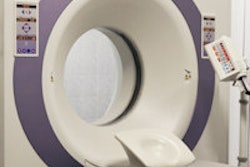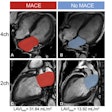Wednesday, December 3 | 11:00 a.m.-11:10 a.m. | SSK16-04 | Room N226
In this presentation, researchers will show how the combination of perfusion arterial spin-labeled (ASL) MRI and machine learning can provide early identification of Alzheimer's disease.Imaging options for Alzheimer's disease include PET and SPECT, as well as structural and functional MRI. Currently, the American Academy of Neurology recommends that each person with memory complaints obtain a brain MRI to rule out other organic causes for memory loss such as tumor or stroke, said presenter Dr. Cyrus Raji, PhD, from the University of California, Los Angeles.
"Given that such patients will be receiving an MRI, I wanted to see if we can use perfusion arterial spin-labeled MRI to yield additional information about whether it is possible to detect abnormalities predictive of Alzheimer's," Raji told AuntMinnie.com. "ASL-MRI provides fully quantifiable perfusion maps of the brain without using any injected contrast or radiation, and it is easily added onto standard MR pulse sequences used to assess persons with memory complaints."
The researchers selected 24 individuals (12 normal, 12 with early-stage Alzheimer's dementia; average age, 78) who had received structural and perfusion ASL-MRI from the Cardiovascular Health Study, an observational study of risk factors for cardiovascular disease in adults 65 years or older. They then combined the perfusion ASL studies with a machine-learning technique and also tested the algorithm on the structural images.
The study demonstrated that the combination of perfusion ASL with the machine-learning algorithm could distinguish persons with Alzheimer's from normal individuals with 92% accuracy, outperforming the 58% accuracy rate produced by machine-learning analysis of the volumetric MRI studies.
"Machine learning of quantitative perfusion MRI can therefore be used to identify persons with Alzheimer's dementia," Raji said. "Persons who are referred for routine MRI for memory complaints can now have the option of a perfusion sequence that can be added onto their MRI and can provide insight into their risk for dementia -- thus changing their course of care."




















